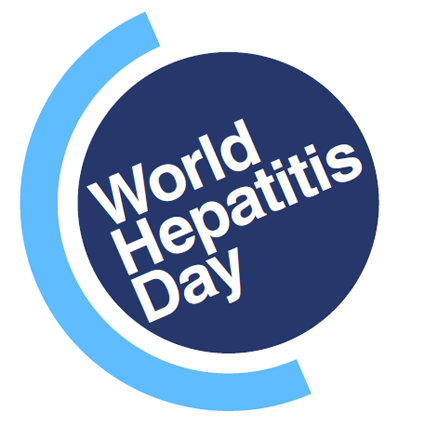ISLAMABAD, Jul 28 (APP):As the world marks World Hepa
titis Day today, health experts are emphasizing the importance of safe practices and awareness in preventing the spread of hepatitis, a silent killer disease that claims thousands of lives every year.
Talking to PTV news channel, Executive Director and spokesperson Dr Abdul Jabbar Bhutto in Polyclinic explaine
d that World Hepa
titis Day aims to focus on taking concrete steps towards eliminating this silent killer.
On World Hepa
titis Day, we are reminde
d that hepa
titis is a preventable and treatable disease. By raising awareness, improving access to testing and treatment, and supporting those affected, we can break the cycle of suffering.
Let us unite to combat this silent killer, prioritize liver health, and create a world where no one dies from hepatitis-related illnesses, he added. The theme for this year’s campaign is “It’s Time for Action,” emphasizing the need for immediate and collective efforts to combat hepatitis, he added.
World Hepa
titis Day is observed annually on July 28 to raise awareness about hepatitis, including the infectious diseases hepa
titis A, B, C, D, and E, adding, people should avoid sharing needles. Using new, sterile needles for injections. It prevents transmission of blood-borne hepa
titis viruses (B and C).
He said every person should ensure screening of blood to patients, do not share razors, toothbrushes, or nail clippers as personal items can carry blood. It prevents transmission through small amounts of blood.
Dr Ikram Tirmizi – Gastroenterologis at Polyclinic adde
d that more awareness drives for public can help in informing the public about hepa
titis and how it spreads, adding, this encourages behavior changes that reduce the risk of transmission.
WHO also continues to support countries in monitoring their progress and validating hepa
titis elimination through the newly established Regional Validation
Advisories, he added.
Individuals with chronic liver disease or liver conditions can have existing liver disease or conditions, getting tested for hepa
titis is crucial to manage your overall liver health effectively.
Regular testing and monitoring enable healthcare professionals to assess liver function, track any changes, and make informed decisions regarding further interventions or treatments.
Early detection and monitoring of hepa
titis can significantly impact treatment outcomes, quality of life, and long-term liver health, he added. In remote areas, limited access to healthcare and education makes communities more vulnerable to hepatitis. By expanding awareness and promoting healthy habits, we can control this disease, he added.
By working together, we can bring hepa
titis awareness and prevention efforts to remote areas, saving lives and building healthier communities, he further mentioned. We need to promote healthy eating habits, proper food handling, and hygiene practices to prevent hepa
titis A and E, he added.
Encouraging safe drinking habits, proper waste disposal, and improved sanitation infrastructure to prevent hepa
titis A and E, he said. In addition, Pakistan’s healthcare system faces challenges in providing adequate testing and treatment for hepatitis, said Dr Enshal Ikram at Polyclin
ic that many people cannot afford the high costs of treatment, and healthcare facilities in rural areas often lack the necessary resources and expertise.
By supporting healthcare initiatives and advocating for policy changes, we can improve access to care and treatment for those affected by hepatitis, she added.
Furthermore, stigma and discrimination against people living with hepa
titis are common in Pakistani society. This can lead to social isolation, depression, and delayed seeking of medical care. By promoting awareness and understanding, we can reduce stigma and encourage those affected to seek help and support, she mentioned.
Cultural practices and traditions can also contribute to the spread of hepatitis. For example, sharing razors and blades at barbershops and using contaminated equipment for tattoos and piercings can transmit hepa
titis B and C. By promoting safe practices and providing education on the risks, we can reduce transmission rates, she further highlighted.
